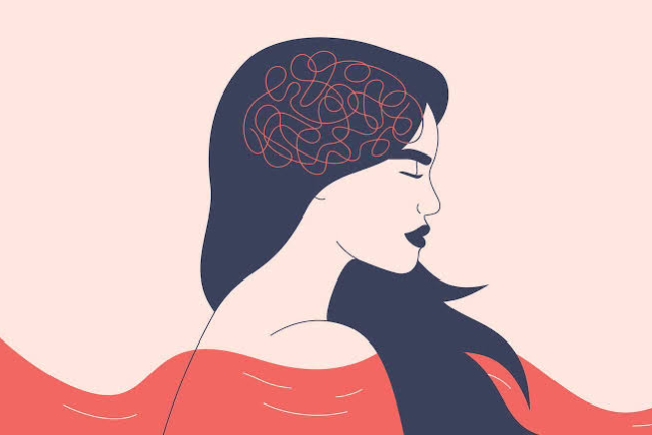New Perspective on PTSD Support
Post-Traumatic Stress Disorder (PTSD) affects millions of individuals worldwide, from veterans and abuse survivors to those who have experienced life-altering events. While traditional therapy has long been a primary method of treatment, an innovative coaching model, Mastery In Life (MIL), is emerging as a powerful tool for personal development and mental health support.
The Mastery In Life Model is a modernized approach that builds on Carl Rogers’ person-centered therapy to help individuals overcome PTSD and other mental health challenges. This client-centered method provides coaches with the training and tools to offer a structured, supportive, and non-judgmental environment that promotes healing and personal growth.
In this blog, we’ll explore how Mastery In Life coaching supports individuals with PTSD and why this innovative model is revolutionizing mental health and personal development.
Understanding PTSD: A Mental Health Challenge That Requires Personalized Support
PTSD is a mental health disorder caused by experiencing or witnessing a stressful event. Common symptoms include:
Flashbacks and nightmares
Severe anxiety and panic attacks
Emotional numbness or detachment
Hypervigilance and difficulty concentrating
Uncontrollable negative thoughts about the event
Traditional therapy, including cognitive-behavioral therapy (CBT) and exposure therapy, has proven beneficial in managing PTSD. However, these methods may not always be enough for individuals seeking empowerment and self-direction in their recovery journey.
This is where coaching and client-centered therapy come into play.
Coaching vs. Traditional Therapy: How Mastery In Life Fills the Gap
1. The Difference Between a Motivational Speaker, a Therapist, and a Coach
Understanding the role of coaching in PTSD support requires distinguishing it from motivation-based guidance and traditional therapy:
Motivational Speakers provide inspiration and encouragement but lack personalized strategies for sustained change.
Psychologists and Therapists analyze behaviors, emotions, and thought patterns to help clients understand and heal from past trauma.
Coaches using the Mastery In Life Model combine mentorship, structured goal-setting, and emotional support, focusing on present and future growth rather than past trauma.
Mastery In Life coaching does not replace therapy, but it enhances it by helping individuals take control of their lives and make actionable progress toward healing.
What is the Mastery In Life (MIL) Model?
The Mastery In Life Model is a structured coaching method that integrates the principles of client-centered therapy into a coaching framework. This model is designed to:
Empower clients by helping them navigate PTSD and personal development challenges.
Utilize empathy, unconditional positive regard, and genuine understanding to create a safe space for growth.
Provide coaching techniques rooted in person-centered therapy, individuals can examine their feelings and experiences at their own speed.
Inspired by Carl Rogers’ approach, MIL focuses on self-actualization, helping clients recognize their potential and develop strategies to overcome obstacles.
How Mastery In Life Supports PTSD Recovery
1. Creating a Safe and Structured Environment
Healing from PTSD necessitates a safe, regulated atmosphere in which people can express their emotions and experiences. MIL coaches are trained to offer nonjudgmental assistance while directing customers to realistic answers.
2. Focusing on the Present and Future
Unlike traditional therapy, which often revisits past traumas, Mastery In Life coaching focuses on the present and future. The approach encourages clients to:
Develop resilience and coping strategies
Set achievable goals for personal growth
Identify strengths and areas for improvement
Build confidence and self-awareness
3. Using Coaching Techniques to Foster Healing
MIL coaches use various techniques to support PTSD recovery, including:
Visualization & Mindfulness – Helping clients focus on positive outcomes and stay present.
Goal-Setting – Encouraging clients to take control of their lives and work towards success.
Active Listening & Validation – Ensuring clients feel heard, understood, and accepted.
Cognitive Reframing – Helping clients shift negative thought patterns into empowering perspectives.
4. Providing Long-Term Support
One of the biggest challenges for individuals with PTSD is maintaining consistent progress. The MIL Model ensures ongoing support, offering regular coaching sessions that help individuals stay on track with their personal development journey.
How to Get Involved with the Mastery In Life Model
For Individuals Seeking Personal Development
If you or someone you know is struggling with PTSD or personal setbacks, Mastery In Life coaching can be a transformative experience. You can explore MIL training courses without needing a coaching certification or degree. The program helps individuals:
Gain mental health and personal development tools
Improve emotional resilience
Build a stronger sense of self-worth
Learn practical strategies for overcoming life’s challenges
For Aspiring Coaches
If you are passionate about helping others, Mastery In Life coaching offers a rewarding career path. The MIL Model equips coaches with the necessary training to support clients effectively. With the right demographic, marketing, and effort, coaches can earn over $70,000 per year.
Get Started Today
To learn more about the Mastery In Life Model, visit the official website: milcoaching.com
Follow on Instagram: @MIL_Coaching
Connect with Me: @DrAaronPBryant on all social platforms
Final Thoughts: A New Approach to PTSD Support
Healing from PTSD is a personal journey, and finding the right support system is crucial. Mastery In Life coaching bridges the gap between therapy and personal development, providing individuals with the tools, guidance, and encouragement they need to move forward.
If you are looking for a modern approach to mental health support, consider exploring MIL coaching, because everyone deserves a path to healing and growth.


